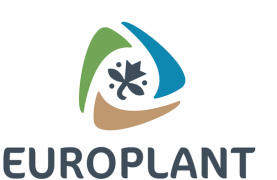Abstract
This work aimed to control potato pathogens using metal nanoparticles that can be integrated into potato disease management strategies. The preparation containing iron, zinc, copper and molybdenum nanoparticles (NPs) in a polymer film formed from a mixture of Na-carboxymethylcellulose and polyethylene glycol-400 was developed for potato protection from early blight (Alternaria solani Sorauer), black scurf and stem canker (Rhizoctonia solani Kühn) and late blight (Phytophthora infestans (Mont.) de Bary A) diseases. The optimal concentrations of metal NPs, Fe, Zn, Cu and Mo were 10–6%, 10–2%, 10–8% and 10–8%. Potato tubers were coated with metal NPs containing film before planting. Field trials were conducted in 2018 and 2019. Averaged over the 2 years, pre-planting treatment of seed tubers with nanopreparations of Fe, Zn, Cu and Mo reduced the prevalence and development degree of Alternaria spp. from 29.2% and 7.4%, respectively, to 10.8% and 2.0% and Phytophthora infestans from 12.8% and 2.1% to 0.9% and 0.1%, and the prevalence of Rhizoctonia solani from 8.4 to 6.5%. The pre-sowing treatment of potato tubers with metal NPs in the polymer composition increased crop yield by 25.7% (2018) and 28.1% (2019) and the yield of commercial tubers by 11.7% (2018) and 31.2% (2019) and did not affect the starch content and consumer qualities.















